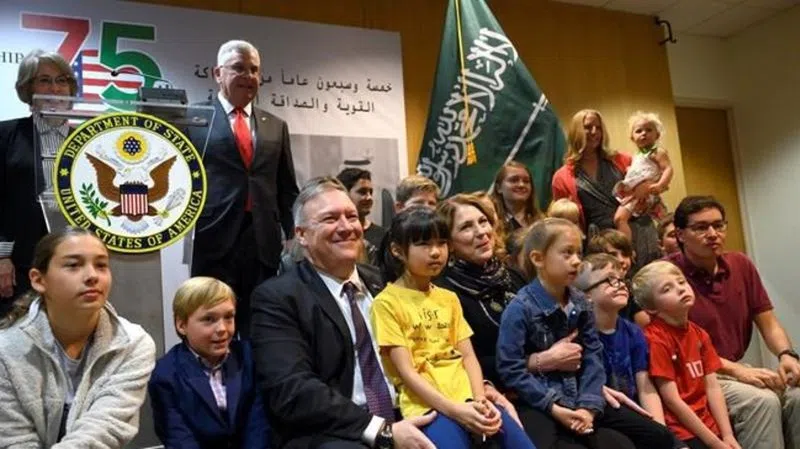
Pompeo in Saudi Arabia for visit focused on Iranian threats
RIYADH, Saudi Arabia — U.S. Secretary of State Mike Pompeo met with Saudi Arabia’s King Salman and the crown prince on Thursday to discuss shared security interests in the Gulf and threats from Iran. He also toured a sprawling desert air base in Saudi Arabia where a few thousand U.S. troops are deployed as part of a wider effort by the Trump administration to stymie Iran’s regional reach.
Ahead of his arrival in the capital Riyadh, Pompeo said he’d also raise with the Saudi leadership concerns about human rights and the cases of dual Saudi-American citizens.
Some of these American citizens have been imprisoned in the kingdom as part of a wider crackdown on perceived critics of Crown Prince Mohammed bin Salman. They include Badr al-Ibrahim, a writer and physician, and Salah al-Haidar, whose mother is prominent women’s rights campaigner Aziza al-Yousef who faces trial for her activism.
Others are barred from leaving Saudi Arabia, like Walid Fitaihi, a Boston-area physician who was swept up in an anti-corruption campaign launched by the crown prince in late 2017.


